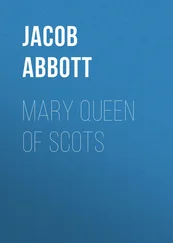Henry Bell - Life of Mary Queen of Scots, Volume 1 (of 2)
Здесь есть возможность читать онлайн «Henry Bell - Life of Mary Queen of Scots, Volume 1 (of 2)» — ознакомительный отрывок электронной книги совершенно бесплатно, а после прочтения отрывка купить полную версию. В некоторых случаях можно слушать аудио, скачать через торрент в формате fb2 и присутствует краткое содержание. Жанр: foreign_antique, foreign_prose, на английском языке. Описание произведения, (предисловие) а так же отзывы посетителей доступны на портале библиотеки ЛибКат.
- Название:Life of Mary Queen of Scots, Volume 1 (of 2)
- Автор:
- Жанр:
- Год:неизвестен
- ISBN:нет данных
- Рейтинг книги:5 / 5. Голосов: 1
-
Избранное:Добавить в избранное
- Отзывы:
-
Ваша оценка:
- 100
- 1
- 2
- 3
- 4
- 5
Life of Mary Queen of Scots, Volume 1 (of 2): краткое содержание, описание и аннотация
Предлагаем к чтению аннотацию, описание, краткое содержание или предисловие (зависит от того, что написал сам автор книги «Life of Mary Queen of Scots, Volume 1 (of 2)»). Если вы не нашли необходимую информацию о книге — напишите в комментариях, мы постараемся отыскать её.
Life of Mary Queen of Scots, Volume 1 (of 2) — читать онлайн ознакомительный отрывок
Ниже представлен текст книги, разбитый по страницам. Система сохранения места последней прочитанной страницы, позволяет с удобством читать онлайн бесплатно книгу «Life of Mary Queen of Scots, Volume 1 (of 2)», без необходимости каждый раз заново искать на чём Вы остановились. Поставьте закладку, и сможете в любой момент перейти на страницу, на которой закончили чтение.
Интервал:
Закладка:
It has been said, that under the reigns of the Fourth and Fifth James, the moral and political aspect of the Scotch horizon began to brighten. This is to be attributed partly to the beneficial changes which the progress of time was effecting throughout Europe, and which gradually extended themselves to Scotland, – and partly to the personal character of these two monarchs. France, Germany, and England, had made considerable strides out of the gloom of the dark ages, even before the appearance of Francis I., Charles V., and Henry VIII. James IV., naturally of a chivalric and ardent disposition, was extremely anxious to advance his own country in the scale of nations; and whilst, by the urbanity of his manners, he succeeded in winning the affections of his nobles, he contrived also to find a place in the hearts of his inferior subjects, even beside that allotted to their own hereditary chieftain, – an achievement which few of his predecessors had been able to accomplish. The unfortunate battle of Flodden, is a melancholy record both of the vigour of James’s reign, and of the national advantages which his romantic spirit induced him to risk in pursuit of the worthless phantom of military renown.
James V. had much of the ardour of his father, combined with a somewhat greater share of prudence. He it was who first made any successful inroads upon the exorbitant powers of his nobility; and though, upon more occasions than one, he was made to pay dearly for his determination to vindicate the regal authority, he was, nevertheless, true to his purpose to the very last. There seem to be three features in the reign of this prince which particularly deserve attention. The first is, the more extensive intercourse than had hitherto subsisted, which he established between Scotland and foreign nations, – particularly with France. The inexhaustible ambition of Charles V., which aimed at universal empire, and which probably would have accomplished its design had he not met with a rival so formidable as Francis I., was the means of convincing the other states of Europe, that the only security for their separate independence was the preservation of a balance of power. Italy was thus roused into activity, and England, under Henry VIII., took an active share in the important events of the age. To the continental powers, against whom that monarch’s strength was directed, it became a matter of no small moment to secure the assistance of Scotland. Both Francis and Charles, therefore, paid their court to James, who, finding it necessary to become the ally of one or other, prudently rejected the empty honours offered him by the Emperor, and continued faithful to France. He went himself to Paris in 1536, where he married Magdalene, daughter of Francis. She died however soon after his return home; but determined not to lose the advantages resulting from a French alliance, he again married, in the following year, Mary of Lorraine, daughter to the Duke of Guise, and the young widow of the Duke of Longueville. Following the example of their king, most of the Scotch nobility visited France, and as many as could afford it, sent their sons thither to be educated; whilst on the other hand, numerous French adventurers landed in Scotland, bringing along with them some of the French arts and luxuries. Thus the manners of the Scotch, gradually began to lose a little of that unbending severity, which had hitherto rendered them so repulsive.
The second peculiarity in the reign of James V., is the countenance and support he bestowed upon the clergy. This he did, not from any motives of bigotry, but solely as a matter of sound policy. He saw that he could not stand alone against his nobles, and he was therefore anxious to raise into an engine of power, a body of men whose interests he thus identified with his own. It is remarkable, that even in the most flourishing days of Catholicism, when the Pope’s ecclesiastical authority extended itself everywhere, Scotland alone was overlooked. The king was there always the head of the church, in so far as regarded all ecclesiastical appointments, and the patronage of his bishoprics and abbeys was no slight privilege to the Scottish monarch, denied as it was to other kings of more extensive temporal jurisdiction. James converted into benefices, several of the forfeited estates of his rebellious nobles, and raised the clergy to a pitch of authority they had never before possessed in Scotland. He acted upon principle, and perhaps judiciously; but he was not aware, that by thus surrounding his priests with wealth and luxury, he was paving the way for their utter destruction, and a new and better order of things.
It will be useful to observe, as the third characteristic of this reign, the encouragement James gave to the arts and sciences. For the first time, education began to take some form and system. He gave stability to the universities, and was careful to select for them the best teachers. He was fond of drawing to his court men of learning and genius. He was himself a poet of considerable ability. He had likewise devoted much of his attention to architecture – his fondness for which elegant study was testified, by his anxiety to repair, or rebuild, most of the royal palaces. He established also on a permanent footing, the Court of Session, or College of Justice; and though his reign, as a whole, was not a happy one, it probably redounded more to the advantage of his country than that of any of his predecessors.
At his death, which took place in 1542, at the early age of 30, accelerated by the distress of mind occasioned by the voluntary defeats which his refractory nobles allowed themselves to sustain, both at Falla and Solway Moss, Scotland speedily fell into a state of confusion and civil war. The events which followed are indissolubly connected with the subject of these Memoirs, and are related at length in the succeeding pages.
CHAPTER I.
SCOTLAND AND ITS TROUBLES DURING MARY’S INFANCY
James V. left, as an inheritance to his kingdom, an expensive and destructive war with England. He likewise left what, under such circumstances, was a very questionable advantage, a treasury well stored with gold, and a coinage in good condition, produced from the mines which he had worked in Scotland. The foreign relations of the country demanded the utmost attention; but the long minority necessarily ensuing, as Mary, his only surviving lawful child, was but a few days old when James died, awakened hopes and wishes in the ambitious which superseded all other considerations. For a time England was forgotten; and the prize of the Regency became a bone of civil contention and discord.
There were three persons who aspired to that office, and the pretensions of each had their supporters, as interest or reason might dictate. The first was the Queen-Dowager, a lady who inherited many of the peculiar virtues, as well as some of the failings, of the illustrious house of Guise, to which she belonged. She possessed a bold and masculine understanding, a perseverance to overcome difficulties, and a fortitude to bear up against misfortunes, not often met with among her sex. She was indeed superior to most of the weaknesses of the female character; and having, from her earliest years, deeply studied the science of government, she felt herself, so far as mere political tactics and diplomatic acquirements were concerned, able to cope with the craftiest of the Scotch nobility. Besides, her intimate connexion with the French court, coupled with the interest she might naturally be supposed to take in the affairs of a country over which her husband had reigned, and which was her daughter’s inheritance, seemed to give her a claim of the strongest kind.
The second aspirant was Cardinal David Beaton, at that time the undoubted head of the Catholic party in Scotland. He was a man whose abilities all allowed, and who, had he been less tinctured with severity, and less addicted to the exclusive principles of the Church of Rome, might probably have filled with éclat the very highest rank in the State. He endeavoured to strengthen his title to the Regency, by producing the will of James V. in his favour. But as this will was dated only a short while before the King’s death, it was suspected that the Prelate had himself written it, and obtained the King’s signature, at a time when his bodily weakness had impaired his mental faculties. Beaton was, moreover, from his violence and rigour, particularly obnoxious to all those who favoured the Reformation.
Читать дальшеИнтервал:
Закладка:
Похожие книги на «Life of Mary Queen of Scots, Volume 1 (of 2)»
Представляем Вашему вниманию похожие книги на «Life of Mary Queen of Scots, Volume 1 (of 2)» списком для выбора. Мы отобрали схожую по названию и смыслу литературу в надежде предоставить читателям больше вариантов отыскать новые, интересные, ещё непрочитанные произведения.
Обсуждение, отзывы о книге «Life of Mary Queen of Scots, Volume 1 (of 2)» и просто собственные мнения читателей. Оставьте ваши комментарии, напишите, что Вы думаете о произведении, его смысле или главных героях. Укажите что конкретно понравилось, а что нет, и почему Вы так считаете.












